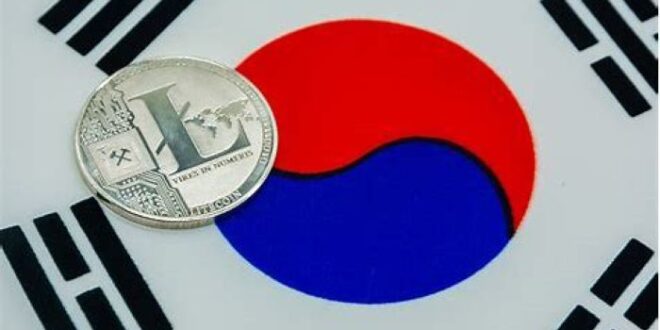In a major development shaking the local cryptocurrency market, South Korean crypto exchanges are reportedly set to delist meme coins and “Kimchi coins,” triggering concerns among traders. The decision comes as part of the country’s ongoing efforts to regulate the digital asset market and crack down on speculative trading practices, particularly in highly volatile altcoins.
The Delisting Wave
South Korean exchanges, including major platforms like Upbit, Bithumb, and Coinone, have begun notifying users of the upcoming delisting of several meme coins and Kimchi coins. These include popular tokens that gained traction due to internet trends, celebrity endorsements, and social media hype, but have little to no intrinsic value or use cases.
Meme coins like Dogecoin (DOGE) and Shiba Inu (SHIB) are seeing a wave of scrutiny, as well as local altcoins that have been dubbed “Kimchi coins” due to their rapid price fluctuations and speculative appeal within South Korea’s unique crypto market. The delisting of these assets is part of a broader initiative to enhance market stability and reduce risky, speculative investments.
Why the Move?
South Korean authorities and exchanges have been facing increasing pressure to address concerns about market manipulation, especially in smaller, highly volatile tokens. Meme coins and Kimchi coins have been widely regarded as speculative assets, attracting retail investors looking to capitalize on short-term price swings rather than long-term growth potential.
Regulators have expressed concerns about the potential for these types of assets to attract inexperienced traders, often leading to significant losses when prices crash. Additionally, the crypto market in South Korea has been linked to fraudulent schemes, pump-and-dump activities, and the manipulation of trading volumes to artificially inflate prices.
In response, South Korean exchanges are tightening their listing requirements and moving to delist coins that do not meet regulatory or operational standards. The goal is to foster a more stable, transparent crypto ecosystem that prioritizes security and investor protection.
Impact on Traders
The news of the delisting has sent shockwaves through the South Korean crypto community, especially among traders who have heavily invested in meme coins and Kimchi coins. Many traders, particularly retail investors who flocked to these assets in search of quick profits, are now faced with the prospect of their investments losing significant value or becoming entirely inaccessible.
For some, the delisting represents a blow to their portfolios and an end to the speculative boom that saw cryptocurrencies like Dogecoin surge in popularity. Others worry that the decision could set a precedent for further restrictions on altcoins in the future, causing uncertainty in the broader crypto market.
While exchanges are allowing a grace period for affected traders to withdraw their holdings, many are already bracing for a wave of sell-offs as users scramble to move their assets before the delisting takes effect.
What Does This Mean for the Future of Altcoins in South Korea?
The move to delist meme coins and Kimchi coins is just the latest in a series of regulatory actions aimed at bringing greater oversight to South Korea’s crypto market. The country has been tightening its regulatory framework in recent months, with new laws designed to combat money laundering and ensure that exchanges operate within legal parameters.
Experts believe that this move could signal a broader trend toward a more stringent regulatory environment for all altcoins in the country, particularly those that are seen as speculative or lacking utility. South Korea has been a key player in the global cryptocurrency landscape, and its actions could influence regulatory practices in other regions, particularly in Asia.
Some industry analysts argue that the delisting of these assets could help pave the way for a more sustainable and responsible crypto ecosystem, where projects with real use cases and utility are able to thrive. However, others fear that the regulatory crackdown may stifle innovation and limit the potential for future blockchain and cryptocurrency developments.
Meme Coins and Kimchi Coins
As the delisting deadline approaches, many traders are looking for ways to protect their holdings and minimize losses. Some are hoping that the affected tokens will find new exchanges willing to list them, while others are preparing to hold out for a potential rebound in the market.
For meme coins and Kimchi coins, the future remains uncertain. While some of these tokens have experienced dramatic price increases in the past, they have also faced significant volatility and regulatory challenges. The decision by South Korean exchanges to delist these coins could signal a turning point in their market viability, forcing them to either adapt to stricter regulations or fade into obscurity.
South Korea’s move to delist meme coins and Kimchi coins is a bold step in its quest to regulate the rapidly growing cryptocurrency market. While it has left traders anxious and uncertain, it also highlights the growing need for regulation in an increasingly speculative crypto landscape. As South Korea continues to refine its approach to digital asset oversight, other countries may look to follow suit in regulating meme coins and similar speculative assets.
For now, traders will need to navigate the shifting landscape, keeping a close eye on market developments and potential regulatory changes in the coming months.
 Business Sandesh Indian Newspaper | Articles | Opinion Pieces | Research Studies | Findings & News | Sandesh News
Business Sandesh Indian Newspaper | Articles | Opinion Pieces | Research Studies | Findings & News | Sandesh News



